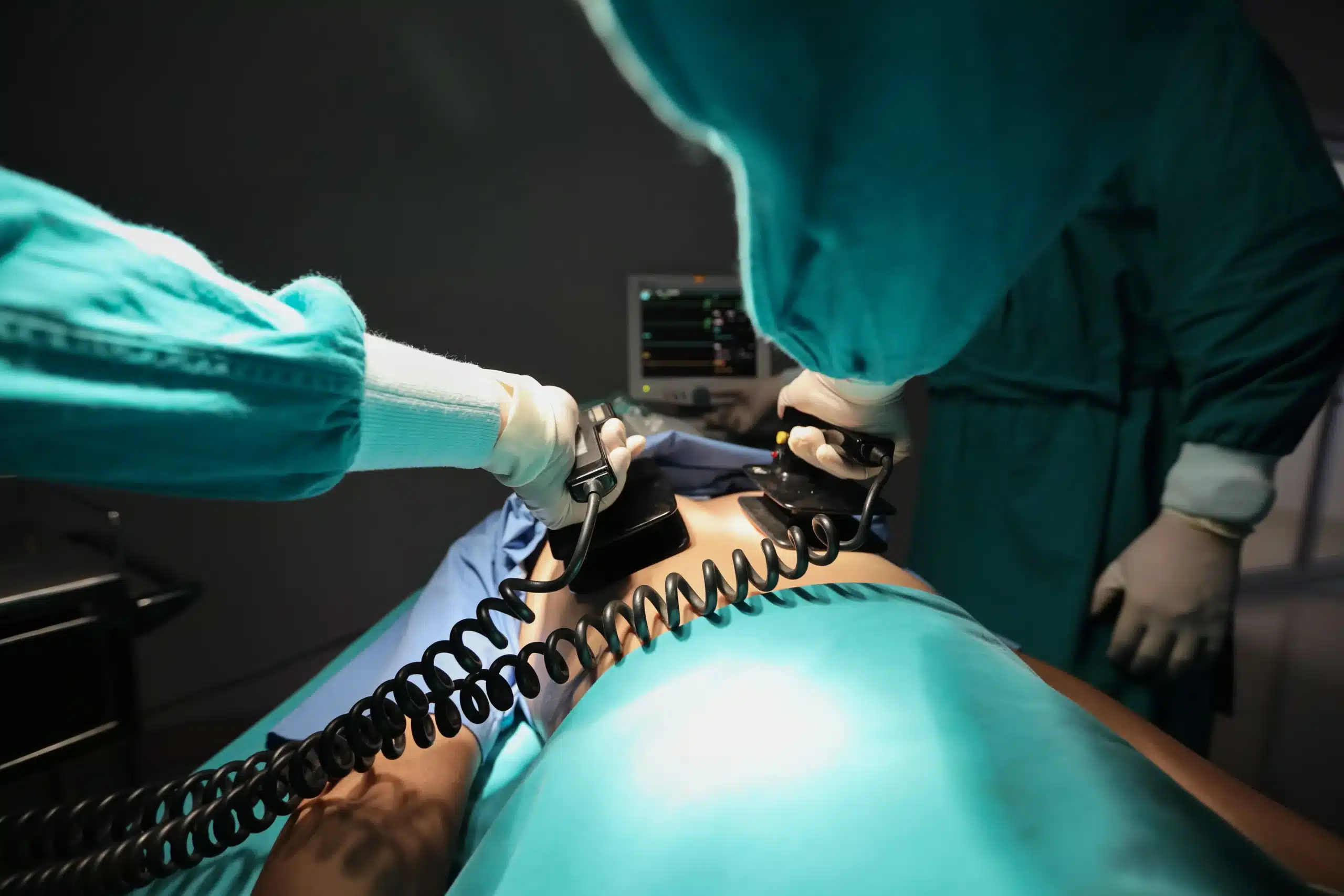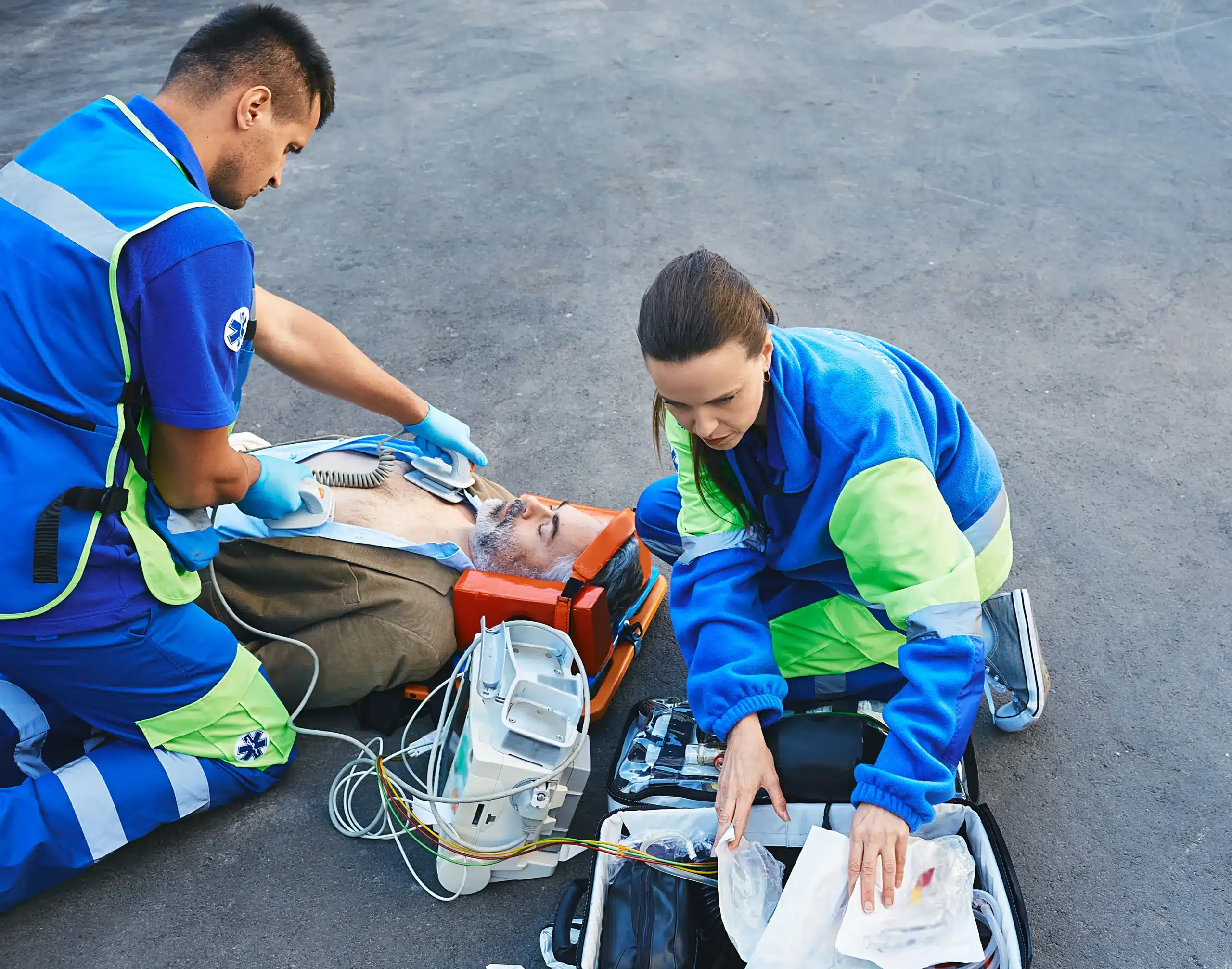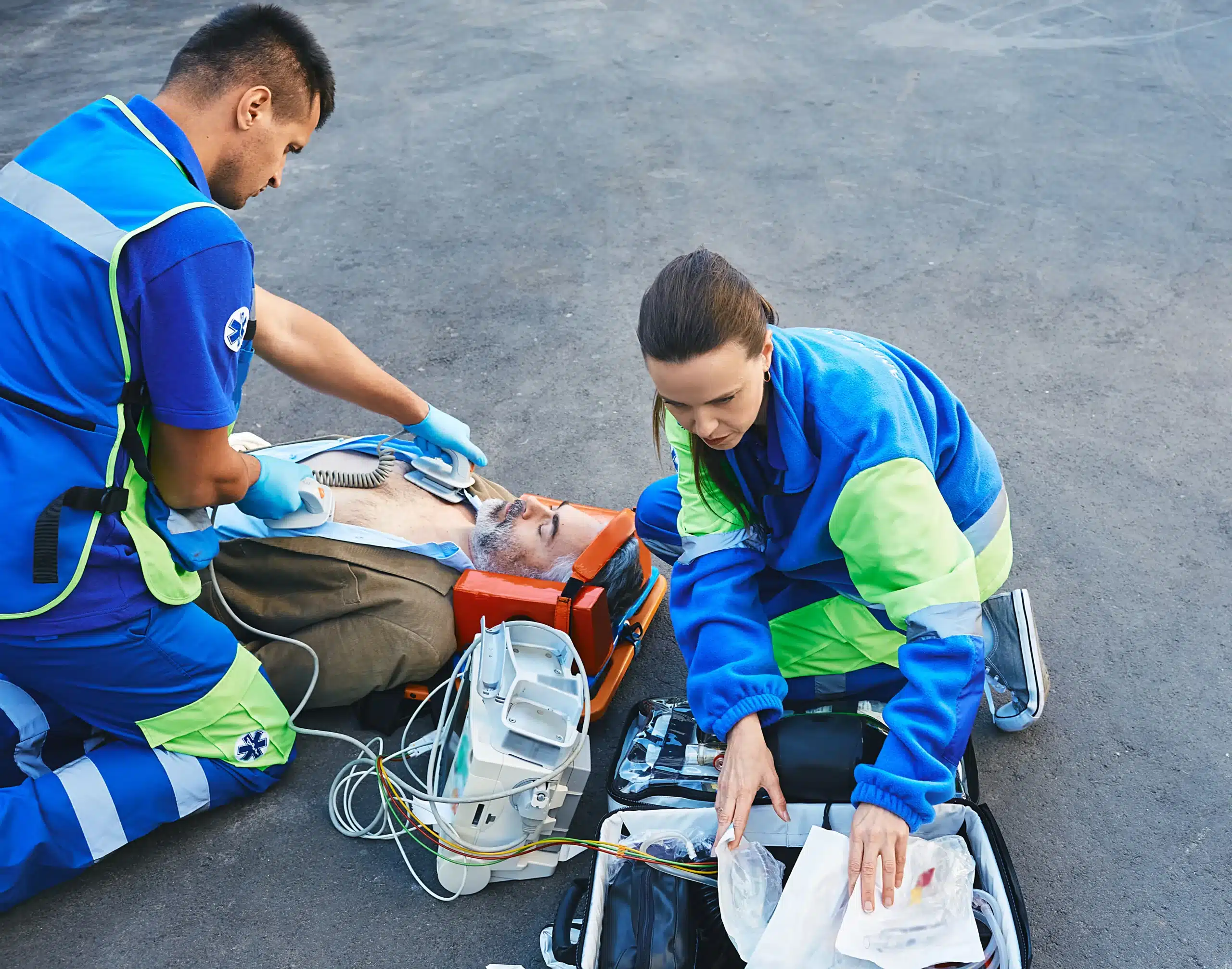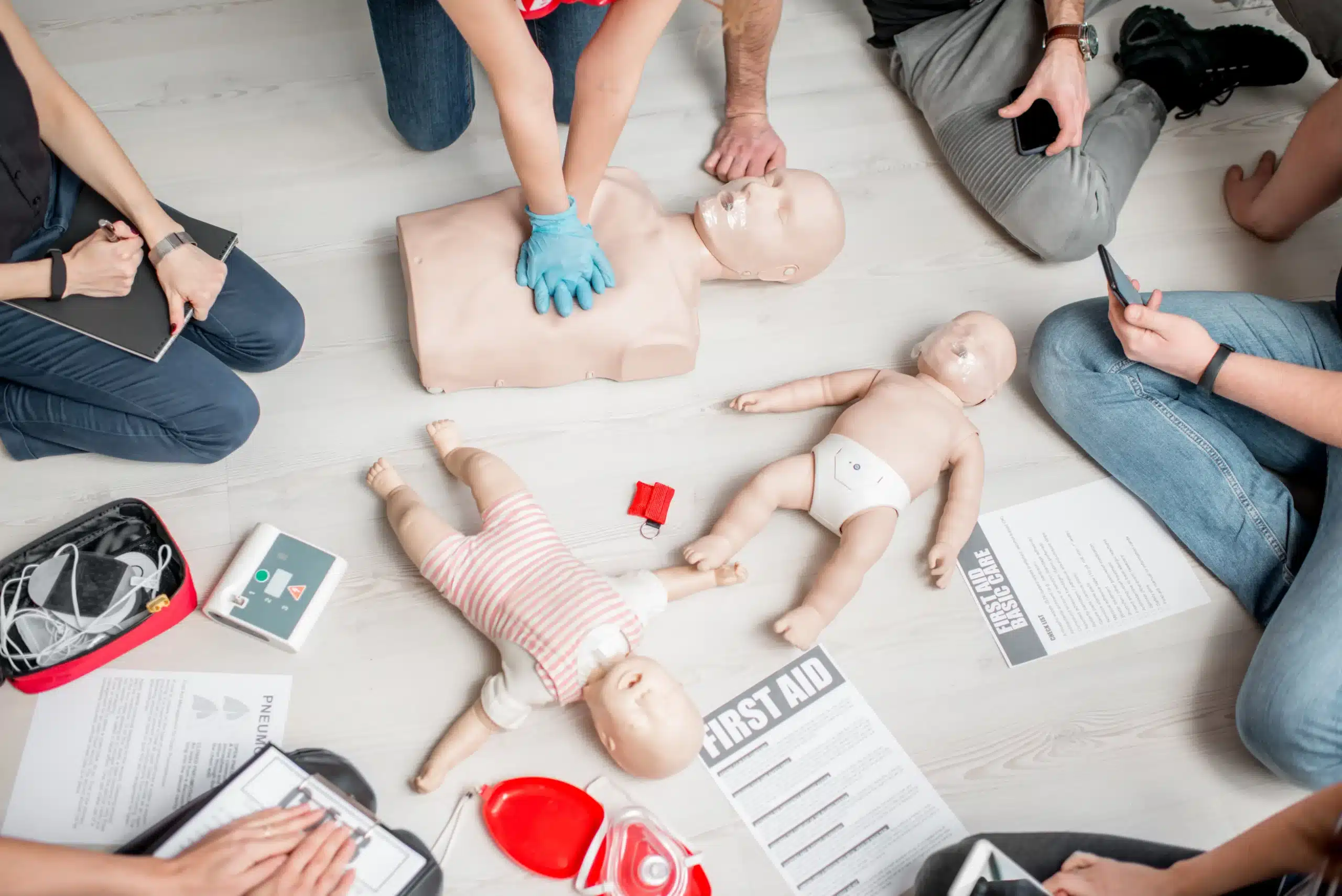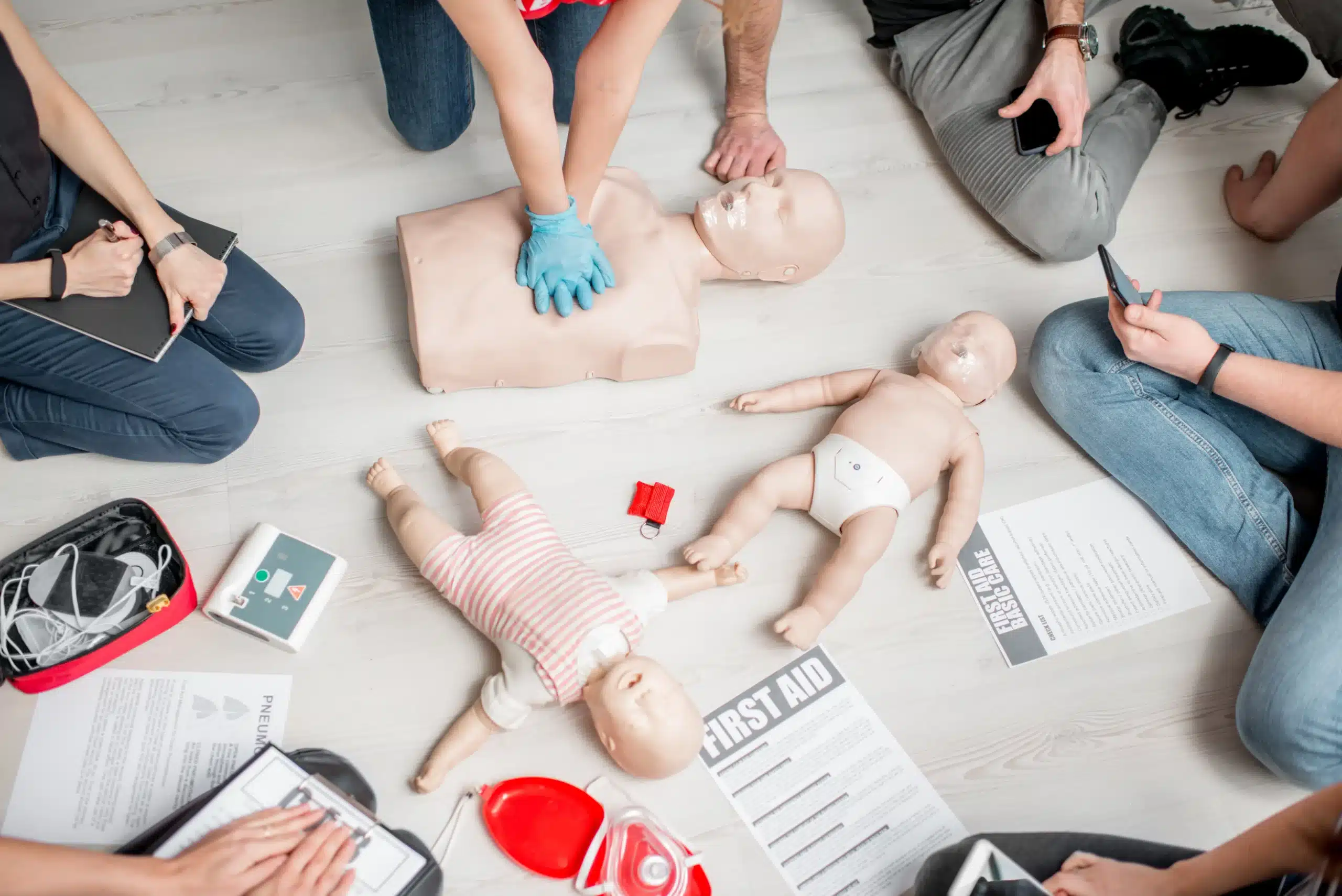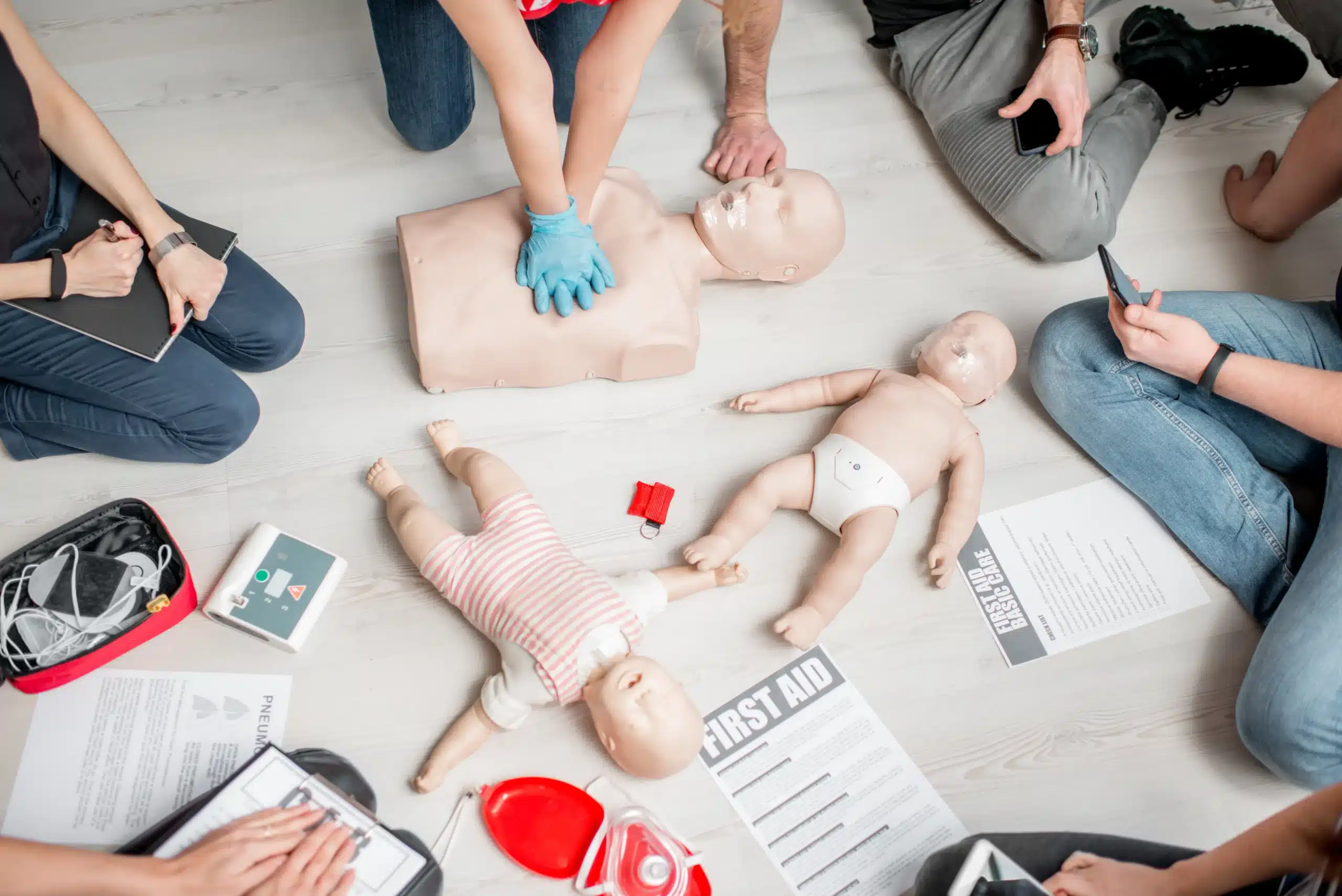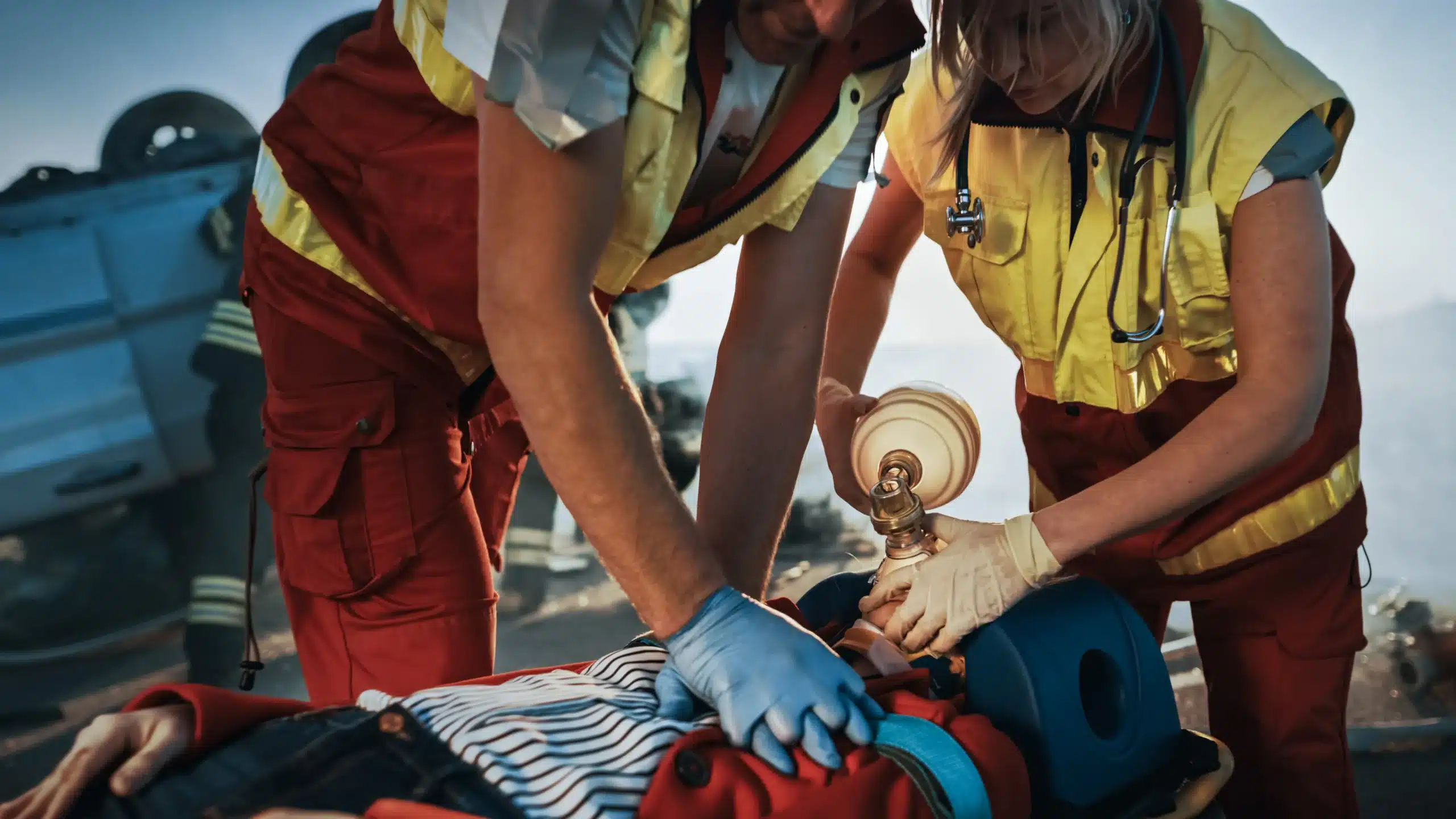Juggling work, family, and everything else life throws your way? Finding time for essential training like BLS can feel impossible. That’s where the flexibility of HeartCode BLS comes in. This blended learning approach lets you learn the fundamentals of Basic Life Support online, at your own pace, then complete a shorter, in-person skills session. If you’re searching for “bls heartcode in Walnut Creek,” you’re in luck. This guide covers everything you need to know about HeartCode BLS in the Walnut Creek area, including where to find training, what to expect, and how to make the most of this convenient, effective learning method. We’ll also touch on costs, the value of certification, and local options like Safety Training Seminars.
Key Takeaways
- HeartCode BLS blends online learning with hands-on practice: Study the course material at your own pace online, then demonstrate your skills in a shorter in-person session.
- Choose a training center that meets your needs: Consider factors like cost, schedule, and location when selecting an AHA-certified provider like Safety Training Seminars in Walnut Creek.
- BLS certification offers lasting value: Investing in BLS training provides career opportunities, empowers you to handle emergencies, and offers peace of mind. Maintain your certification by renewing every two years.
What is HeartCode BLS?
What is HeartCode BLS?
HeartCode BLS is an online course that teaches the fundamentals of Basic Life Support. It’s a convenient way to learn essential CPR techniques at your own pace. The program uses adaptive learning technology, meaning it adjusts to your progress and provides a personalized learning experience. You’ll work through interactive modules, simulations, and assessments, building your knowledge and confidence in providing BLS.
How HeartCode BLS Differs from Traditional BLS
Unlike traditional BLS classes, which are solely in-person, HeartCode BLS uses a blended learning approach. This means you complete the coursework online and then attend a shorter, in-person skills session. This combination allows for flexible online learning combined with the essential hands-on practice needed to master BLS skills. Traditional classes require a larger time commitment in a single block, while blended learning lets you fit the training into your schedule more easily. You can learn more about our blended learning BLS course on our website.
Benefits of Blended Learning
Blended learning offers several advantages. The online portion allows you to learn the material at your own speed, reviewing sections as needed. This can be especially helpful for those who prefer self-directed learning or have busy schedules. Once you’ve completed the online modules, you’ll schedule a hands-on skills session with an American Heart Association (AHA) instructor. This session focuses on practicing the techniques you learned online, ensuring you’re proficient in performing BLS in real-world scenarios. After successfully completing both parts, you’ll receive your BLS certification card. You can find more information on the American Heart Association website.
Find HeartCode BLS Training in Walnut Creek
Finding the right BLS training center is key to a positive learning experience. Here’s what to look for in the Walnut Creek area:
Safety Training Seminars
Safety Training Seminars, a woman-owned American Heart Association Training Center, offers a range of courses including BLS, ACLS, PALS, CPR, and First Aid. They focus on providing high-quality training at affordable prices, with classes available seven days a week. Serving Walnut Creek, Concord, and Pleasant Hill, they make it convenient to find a class that fits your schedule. For more details, visit their BLS course page. They also offer a low price guarantee, giving you confidence you’re getting a good value.
Other Accredited Training Centers
While Safety Training Seminars is a great option, exploring other providers is always a good idea. You can find additional accredited training centers in Walnut Creek by searching online for “CPR training Walnut Creek.” ALLCPR is one such option, also providing American Heart Association-certified BLS courses. Look for training centers with convenient locations and schedules, along with positive reviews.
Compare Local Options
When comparing BLS courses in Walnut Creek, consider factors like cost, schedule flexibility, class size, and instructor experience. Many courses use a blended learning format, combining online coursework with in-person skills sessions. This offers the convenience of online learning combined with the hands-on practice essential for mastering BLS skills. Safety Training Seminars, for example, uses this blended learning approach for their AHA-certified BLS courses, along with other certifications like CPR, ACLS, PALS, and First Aid. Research and compare options to find the best fit for your needs.
Costs & Value of HeartCode BLS
Understanding the cost of HeartCode BLS and its long-term value is key to making an informed decision about your training. This section breaks down pricing in Walnut Creek, potential discounts, and the benefits of getting certified.
Walnut Creek Pricing
BLS certification courses in Walnut Creek usually involve two parts: the online HeartCode BLS portion and the required in-person skills session. Pricing can vary based on the training center. It’s always a good idea to check directly with providers like Safety Training Seminars for their most up-to-date pricing on BLS courses. Their website often lists current rates for both the online and in-person components. Remember that the total cost will be the sum of both parts.
Discounts and Promotions
Many training centers offer discounts, especially for group registrations or students. Check if discounts are available when registering for multiple courses at once, such as combining BLS with ACLS or PALS. Keep an eye out for seasonal promotions or special offers that could lower the overall cost. Safety Training Seminars are known for their competitive pricing, so it’s worth checking their site for any ongoing deals. They also offer other courses like the EMSA Child Care Health & Safety program and RQI classes.
Long-Term Benefits of Certification
While there’s an upfront cost for HeartCode BLS, consider the long-term value it provides. A BLS certification from the American Heart Association is valid for two years. This certification can open doors to various job opportunities, particularly in healthcare, education, and fitness. It also empowers you to confidently respond to emergencies and potentially save lives. The peace of mind that comes with knowing you’re prepared for a critical situation is invaluable. Beyond personal satisfaction, holding a current BLS certification can also fulfill workplace requirements or licensing needs.
Get HeartCode BLS Certified
Getting your HeartCode BLS certification is a straightforward, blended learning process. It combines online coursework with an in-person skills session, offering flexibility and convenience. Here’s a step-by-step guide:
Prerequisites & Registration
There are no prerequisites for HeartCode BLS. Register for the HeartCode BLS course through Safety Training Seminars to get started. You’ll receive access to the online portion once you’ve registered.
Online Learning
The online portion, HeartCode® BLS Online, is a self-paced program using adaptive learning technology. The program adjusts to your learning pace, providing a personalized experience. You’ll work through modules, interactive exercises, and simulations covering essential BLS skills. This online training lets you learn the material at your own speed and on your own schedule.
In-Person Skills Session
After completing the online modules, you’ll attend an in-person skills session to demonstrate your proficiency. You’ll practice on a manikin with a certified AHA instructor, receiving real-time feedback. This hands-on practice ensures you’re prepared to perform BLS in real-world situations. Safety Training Seminars offers these skills sessions in Walnut Creek, convenient for residents of Concord and Pleasant Hill.
Certification & Renewal
Once you’ve completed both the online portion and the in-person skills session, you’ll receive your AHA BLS Provider eCard, valid for two years. Renew your certification before it expires to maintain your BLS skills and stay up-to-date with the latest AHA guidelines.
Make the Most of HeartCode BLS
So, you’ve decided to go for your HeartCode BLS certification—smart move! This blended learning approach gives you the flexibility to learn the material online at your own pace, then demonstrate your skills in person. To help you succeed, we’ve put together some tips to make the most of your HeartCode BLS experience.
Effective Online Study Strategies
HeartCode BLS online uses adaptive learning, meaning the program adjusts to your progress. While this personalized learning path is fantastic, you’ll still want to be intentional with your study habits. Set aside dedicated study time free from distractions. Work through the modules in chunks, taking breaks to avoid burnout. Don’t rush; really absorb the information and take advantage of the interactive elements.
Prepare for the Skills Test
Once you’ve completed the online portion, you’ll need to schedule an in-person skills session with an AHA Instructor or on a Voice-Assisted Manikin (VAM) system. Before your skills check, review the key algorithms and procedures. Practice on a manikin if you can, visualizing the steps and verbalizing the actions. This will build your confidence and muscle memory. Remember, the skills session is designed to evaluate your practical application of the knowledge you gained online, so make sure you’re comfortable with the material before you go.
Maintain Your Certification
Congratulations on completing your HeartCode BLS training! Your BLS Provider eCard is valid for two years. To maintain your certification, you’ll need to retake the course before it expires. Consider adding a reminder to your calendar a few months in advance. This will give you plenty of time to find a course and schedule your training. Staying current with your BLS skills is essential for providing high-quality care and maintaining your professional credentials.
HeartCode BLS FAQs
Online vs. In-Person
HeartCode BLS is a blended learning course, combining online learning with a hands-on skills session. You’ll complete the course material online at your own pace, then schedule an in-person session to demonstrate your skills. Traditional BLS courses are taught entirely in person. HeartCode BLS offers more flexibility, while traditional courses provide a more direct, instructor-led experience. The best format depends on your learning style and schedule. If you learn well independently and need flexibility, HeartCode BLS might be a good fit. If you prefer a structured, in-person setting, a traditional BLS course could be better.
Course Duration & Flexibility
The online portion of HeartCode BLS takes several hours to complete, depending on your learning pace. You can start and stop as needed, fitting the training around your schedule. Once you finish the online modules, you’ll schedule a hands-on skills session with an AHA instructor. This session typically takes a couple of hours. Safety Training Seminars offers flexible scheduling to accommodate busy lifestyles.
Certification Validity & Recognition
After completing both the online portion and the in-person skills session, you’ll receive an AHA BLS Provider eCard, valid for two years. This certification is nationally recognized and meets requirements for many healthcare employers and organizations. Remember to renew your certification before it expires to maintain your BLS credentials.
Tech Requirements & Support
HeartCode BLS uses adaptive learning technology, personalizing your learning experience based on your performance. You’ll need a computer or tablet with internet access to complete the online modules. The HeartCode BLS platform offers technical support to help you troubleshoot any issues. Contact Safety Training Seminars with questions about registration or scheduling your skills session. They’re happy to help.
Related Articles
- BLS HeartCode Pleasant Hill: Your Certification Guide – Walnut Creek CPR Classes
- ACLS HeartCode Pleasant Hill: Your Certification Guide – Walnut Creek CPR Classes
- HeartCode ACLS Walnut Creek: Your Certification Guide – Walnut Creek CPR Classes
- BLS Certification in Pleasant Hill: A Complete Guide
- BLS Courses in Concord: Find the Right Class for You – Walnut Creek CPR Classes
Frequently Asked Questions
What if I don’t have a lot of experience with online learning? HeartCode BLS is designed to be user-friendly, even for those new to online learning. The program guides you through each step, and the self-paced format lets you review material as needed. Plus, the in-person skills session provides hands-on practice and personalized feedback from a certified instructor. This combination of online learning and in-person training ensures you gain the confidence and skills needed to perform BLS effectively.
How long does it take to get certified? The online portion of HeartCode BLS typically takes several hours, though the self-paced format allows you to complete it at your own speed. The in-person skills session usually takes a few hours. You can complete both parts within a week or spread them out over a longer period, depending on your schedule and the availability of skills sessions.
What’s included in the cost of the course? The cost typically covers both the online HeartCode BLS course materials and the in-person skills session. This includes access to the online learning platform, all course content, and the hands-on training with a certified AHA instructor. Be sure to check with your chosen training center for their specific pricing details, as costs can vary.
What if I fail the skills test? The skills session is designed to assess your practical application of BLS techniques. If you don’t demonstrate proficiency during the initial skills check, the instructor will provide feedback and guidance. You’ll have the opportunity to practice and retake the skills check. Most training centers allow multiple attempts to ensure you successfully master the required skills.
How do I renew my BLS certification? Your BLS Provider eCard is valid for two years. To renew, you’ll need to retake the HeartCode BLS course and complete another skills session before your current certification expires. This ensures your skills and knowledge are up-to-date with the latest AHA guidelines. Many training centers offer renewal courses, so check with your original provider or other local options.
